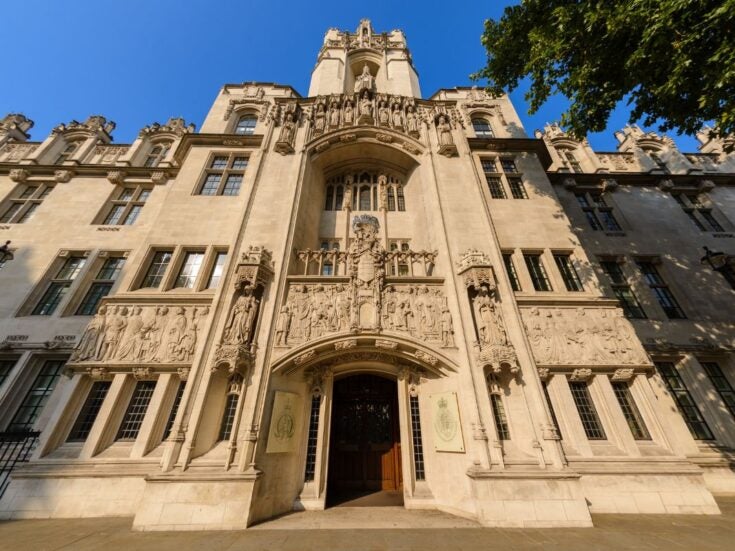Intrusive new measures for investigating tax evasion may be effective, but they offer few protections for the innocent, says Caroline Garnham
When I was young and philosophical I used to think that every advantage had an equal and opposite disadvantage. Fame, fortune and beauty, I thought, came with a price. At an entrepreneurs’ lunch recently, the women on my table disagreed. Being wealthy, famous and beautiful is better than being poor, common and ugly, they said. I am not totally convinced. It may be better in some ways, but certainly not in others.
I was privileged to attend a thought-leadership programme organised by Rainbow Insight in Geneva a few weeks ago. The mood was overwhelmingly pessimistic. Treasuries across the western world are getting poorer and are united in their crackdown against evasion, which is estimated at $6 trillion. With this prize in their sights, treasuries are becoming more daring, convinced that the ends justify the means. But what of innocent taxpayers who get crushed along the way?
Bradley Birkenfeld, a former employee of UBS, is assisting the US Justice Department in disclosing his former clients who were evading an estimated $300 million in US taxes. Their first scalp is Igor Olenicoff, a property developer in California who has pleaded guilty to filing a false return for 2002. Yet are there others, whose accounts are now with the US Justice Department, who have not evaded US tax but are nonetheless being investigated?
Heinrich Kieber, a former employee of Liechtenstein bank LGT, similarly stole confidential LGT client records and sold them to German authorities, making millions of euros. The UK’s HMRC has confirmed that it paid £100,000 for the list, which is believed to contain at least 300 names and could allegedly yield as much as £100 million in unpaid taxes. How many of these accounts were from UK-resident, non-UK domiciled individuals who now face an investigation into their history of remittances to the UK?
Evasion of taxes is clearly wrong and it is good that countries are uniting to fight it.
However, if treasuries around the world are openly admitting to buying stolen information that could lead to payment of tax, will this not encourage ex-spouses, bitter former employees and opportunistic computer hackers to discover and sell information that could lead to an increase in tax revenue? Where are the details of your wealth going, and for what purpose?
In the 2003 Budget, the Inland Revenue announced a plan to spend £66 million over three years to generate additional revenue of £1.4 billion. Part of this funding went towards setting up the Offshore Fraud Project Group, created in 2005. The unit is investigating an alleged £200 billion held between thirteen offshore financial centres. These funds, it suspects, are derived from tax evasion and unacceptable tax avoidance in the UK.
HMRC has stated its intention to crack down on non-UK domiciliaries as well. It wants to review the detail of remittances to the UK of such individuals who they accept as remaining non-UK domiciled but believe have been evading UK taxes. In addition, it has stated that it will exchange any information gleaned from such an investigation with the countries in which the individuals are also taxpayers.
Rather than rely on what is declared in self-assessment tax returns, the OFPG intends to gain information directly from banks. Section 20(8A) of the Tax Management Act 1970 permits HMRC to obtain a court order to demand a third party, such as a bank, to disclose details of customer accounts that HMRC has reason to believe contain undeclared funds. It has used these powers to great advantage against Barclays, HSBC, HBOS and Lloyds TSB. What about safeguards? What of the innocent, law-abiding taxpayer who gets caught up in this purely because his account is of sufficient size to warrant attention?
Rather than safeguards for the innocent taxpayer being improved, they are being knocked away. Since the passing of the 2008 Finance Act in July, HMRC now has greater powers than the police in pursuing suspected tax evaders.
The innocent are protected by nothing more than a charter that has not been approved by parliament, does not have the force of law and therefore cannot be relied upon. The innocent taxpayer caught up in an investigation has no automatic right of appeal against the new powers, no right to an independent scrutiny of a tribunal and no automatic right to compensation for legal and accounting fees spent to prove his innocence.
Paul Aplin, chair of the tax faculty of the Institute of Chartered Accountants in England and Wales, said in July he was ‘worried, very worried about the lack of safeguards for taxpayers’.
What is often overlooked by the envious is that where there is a big bounty trough that becomes known, pigs are always keen to put in their snouts. When one of these pigs happens to be HMRC, eager and motivated to collect more tax, the chances that innocent taxpayers could endure years of investigation to prove their innocence greatly increases.
For those who have evaded tax, under the new rules the penalty is not just payment of tax, interest and penalties, but it is now more likely to be jail.







